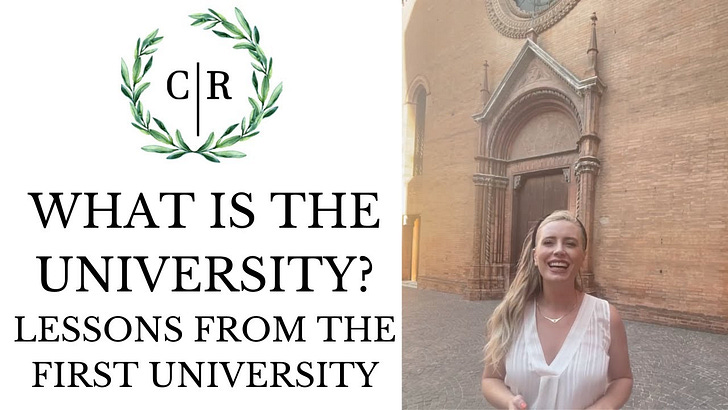What is a university? What it has been, what it is now, and what it can be.
Also, last chance to vote on CR's course offering this Sept, and a special invitation to my conversation with Niall Ferguson and Victor Davis Hanson.
Keep reading with a 7-day free trial
Subscribe to Civic Renaissance with Alexandra Hudson to keep reading this post and get 7 days of free access to the full post archives.



